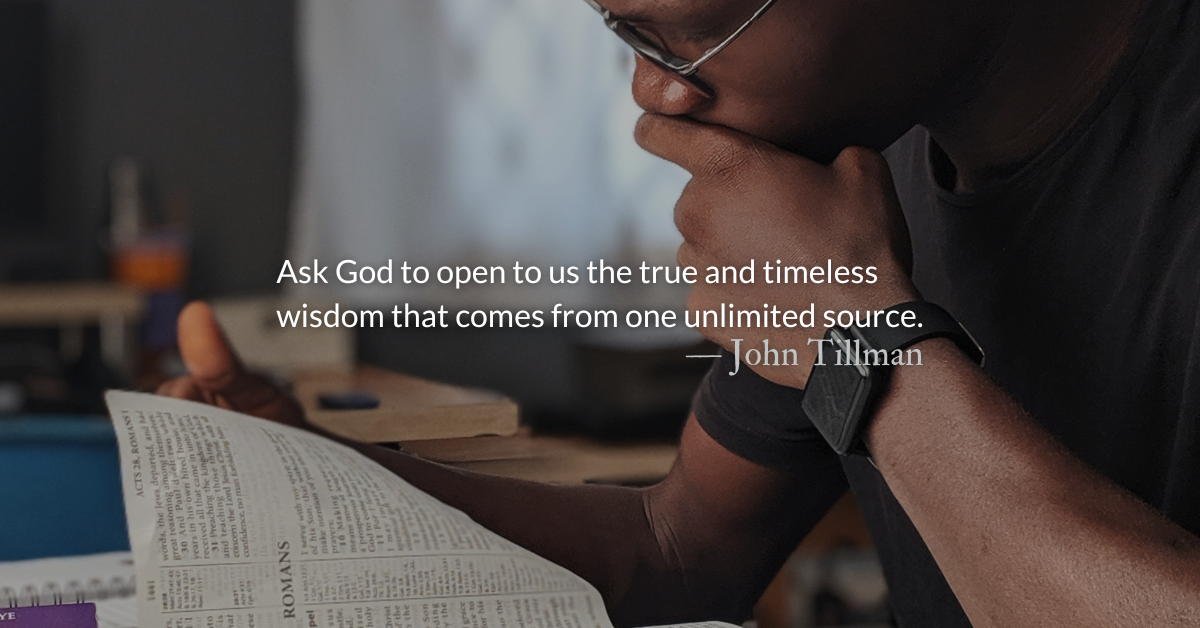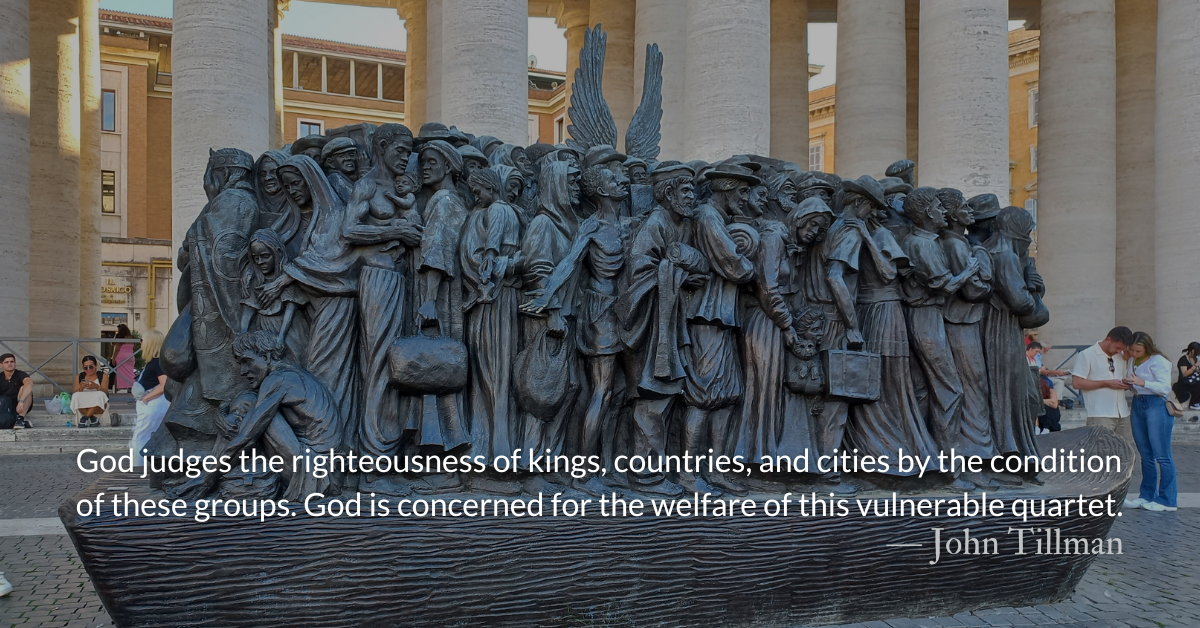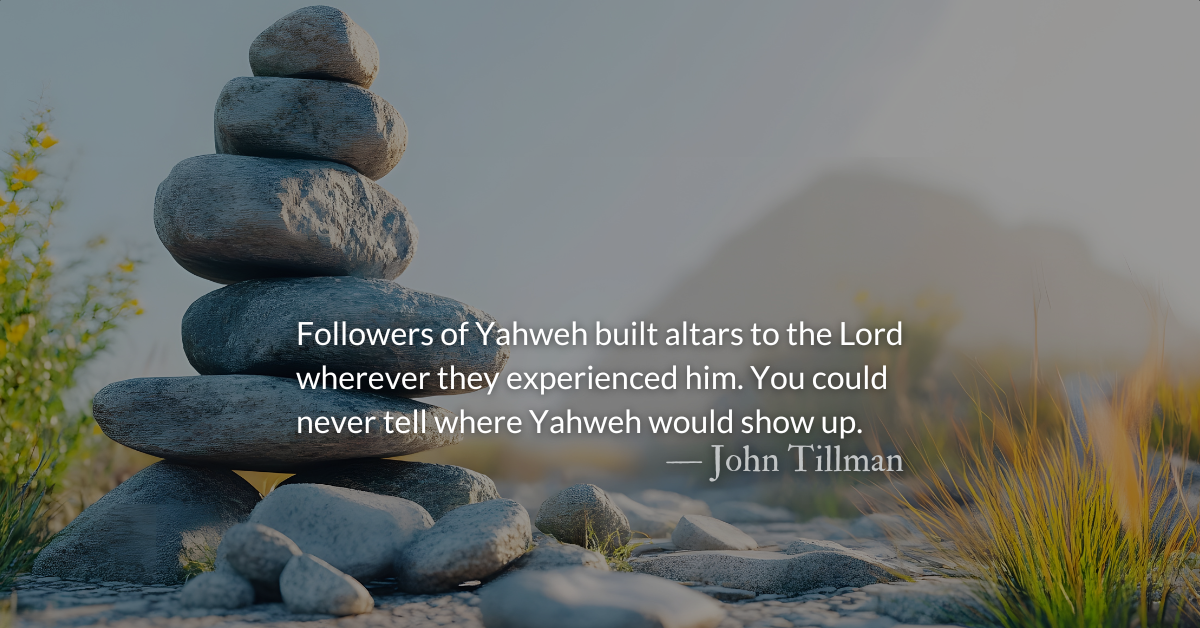Links for today’s readings:
Jan 27 Read: Job 29 Listen: (2:26) Read: Psalm 10 Listen: (2:13)
Scripture Focus: Job 29.17
17 I broke the fangs of the wicked
and snatched the victims from their teeth.
Reflection: Break Their Fangs
By John Tillman
Need to stop a lion, a bear, a wolf, or a viper? Break their fangs.
Broken teeth are bad for any animal but predators are especially reliant on the large teeth that help them capture, hold, and kill prey. No matter how powerful, how large, how fast, or how fierce a predator is, a broken fang means death. Job considered breaking the fangs of the wicked righteousness.
Job often focused on being innocent of wrongdoing. He challenged anyone to point out sin he committed. They couldn’t. He asked God what he had done wrong. God stayed silent. In his final speech, Job focused more on good things he did.
Job’s righteous resume lists actions benefiting the vulnerable. Job was a friend to the poor, the orphan, the widow, and the foreigner. He was eyes for the blind, feet to the lame, a father to those in need, and a legal defender for the immigrant stranger.
As they did then, powerful and wealthy people today take advantage of these and other vulnerable groups. They prey on the weak. Job defined righteousness as not just helping the weak, but incapacitating those preying on them—breaking the predators’ fangs.
Fangs grasp victims, preventing escape, damaging victims, weakening resistance, and sometimes injecting deadly or paralyzing venom. As Christians, breaking the wicked’s fangs does not mean violence but breaking the means used to poison, paralyze, damage, and hold captive the vulnerable.
What might this look like?
Legislation might “break the fangs” of debt, pornography, prejudices, labor abuses, or pollution but political solutions aren’t enough. Churches “break fangs” in their communities in many ways, such as paying off medical debt, supporting pregnant women and mothers, ministering to incarcerated and recently released prisoners, or providing cars, jobs, and safe housing to victims escaping abuse. Individuals “break fangs” by supporting charities that help the fatherless, the immigrant, and other outcasts.
Breaking the fangs of earthly wickedness is about more than saving victims from earthly sufferings. It points to Jesus’ ultimate snake-crushing salvation. John the Baptizer’s doubts about Jesus’ identity were eased by evidence of his earthly actions. Our limited imitations of Christ’s earthly actions ease people’s doubts and reveal Jesus’ true nature as the ultimate savior of all things that will be saved.
Are you on the side of the snake-crusher, the fang-breaker? How are you and your faith community participating in breaking the fangs of the wicked?
Divine Hours Prayer: The Request for Presence
Show us the light of your countenance, O God, and come to us. — Psalm 67.1
– From The Divine Hours: Prayers for Autumn and Wintertime by Phyllis Tickle.
Read more: Righteousness Sets Things Right
Job defines his righteousness by his use of power, wealth, and influence to benefit the weak, the marginalized, and the victimized.
Read more: The Righteous Judge — A Guided Prayer
“Break the arm of the wicked man;
call the evildoer to account for his wickedness
that would not otherwise be found out.”






